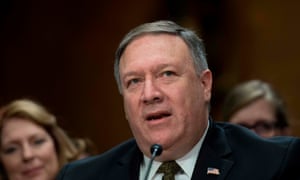
SManalysis
Απρίλιος 24, 2018.
Echedoros
Σε συνέδριο με θέμα «Γεωπολιτική και ασφάλεια στα Δυτικά Βαλκάνια» που διεξήχθη στο πανεπιστήμιο ‘Κολόμβος’ της Νέας Υόρκης, κλήθηκε ο υπουργός Εξωτερικών της Αλβανίας, Ντιτμίρ Μπουσάτι.
Όπως θεώρησε ο γνωστός καθηγητής του Πανεπιστημίου αυτού, Ντέιβιντ Φίλιπς, ο επικεφαλής της αλβανικής διπλωματίας θα έδινε κάποιες απαντήσεις σε αυτό που αποκαλείται ‘ρωσικός κίνδυνος’ για τα Δυτικά Βαλκάνια, τα καυτά θέματα με την Ελλάδα, τις σχέσεις με τη Σερβία καθώς και τη συνεργασία με την Τουρκία.
Η συμμετέχουσα στη συνάντηση, Μιμόζα Φεράι, που εργάζεται στο Ανώτατο Δικαστήριο της Νιου Τζέρσεϊ, γνωστή όταν ήταν φοιτήτρια στο κίνημα του Δεκεμβρίου του 1990 στην Αλβανία, έδωσε ορισμένες εικόνες από τη συνάντηση αυτή στη Νέα Υόρκη.
Σύμφωνα με αυτήν, ο υπουργός Εξωτερικών, όχι μόνο δεν απάντησε στα περισσότερα ερωτήματα, αλλά και στις απαντήσεις που έδωσε κυριάρχησε η αοριστία, χωρίς λογική.
Συνέντευξη στον Γκεζίμ Σαλίου
Συμμετείχατε στη συνάντηση με θέμα «Γεωπολιτική και Ασφάλειας στα Δυτικά Βαλκάνια», στην οποία κλήθηκε ο Αλβανός υπουργός Εξωτερικών Ντιτμίρ Μπουσάτι. Μπορείτε να μας δώσετε ορισμένες λεπτομέρειες σχετικά με τη συζήτηση;
Η συνάντηση ήταν ιδιαίτερα σημαντική δεδομένου ότι μιλούσαν για θέματα ξεχωριστής σημασίας, όπως η γεωπολιτική και η ασφάλεια στα Δυτικά Βαλκάνια.
Αλλά, μπορώ να πω ότι ο Αλβανός ΥΠΕΞ μίλησε τα πρώτα 30 λεπτά γενικόλογα με ένα κείμενο που είχε προετοιμάσει.
Μου φάνηκε ως ένα σχέδιο λόγου και όχι θέση ενός κορυφαίου διπλωμάτη που μιλά με σοβαρότητα. Στη συνάντηση, ο υπουργός ρωτήθηκε αρχικά για τις συνομιλίες με την Ελλάδα και το ζήτημα των τσάμηδων και στα δύο ο Μπουσάτι δεν έδωσε τις κατάλληλες διευκρινίσεις.
Στην αίθουσα οι συμμετέχοντες ήθελαν να μάθουν εάν θα επιστρέφονταν οι περιουσίες των τσάμηδων ή θα επιλύονταν το θέμα στο Στρασβούργο.
Ο υπουργός Εξωτερικών στη συνάντηση αυτή είπε: «Διαβάστε τι είπα δημοσίως για το θέμα αυτό σε συνέντευξή μου με Έλληνα δημοσιογράφο».
Εκτός από αυτό που δεν είναι σοβαρή απάντηση, σημειώνεται ότι ο υπουργός δεν θυμόταν το όνομα του δημοσιογράφου που έδωσε τη συνέντευξη αυτή, το οποίο όνομα, μου το υπενθύμισε, ευγενικά, ο Ντέιβιντ Φίλιπς.
Επίσης, ο Αλβανός υπουργός Εξωτερικών, άφησε αναπάντητες τις ερωτήσεις σχετικά με τους Σλάβους γείτονες. Όσο για το ζήτημα σχετικά με την εμβάθυνση της συνεργασίας με το Κοσσυφοπέδιο και τη σημασία αυτής της σχέσης, ο καθένας μπορεί να κάνει τη δική του υπόθεση, γιατί ο Μπουσάτι δήλωσε ότι αυτό το είχε αναφέρει σε ανάρτησή του στο Facebook.
Ήταν μια άλλη απάντηση που απέφυγε να απαντήσει.
Ετέθη ακόμη το ζήτημα της παρουσίας πολλών τουρκικών επενδύσεων στην Αλβανία.
Ο Μπουσάτι είπε ότι «οι τουρκικές επενδύσεις στη χώρας μας έρχονται πέμπτες στη σειρά, αλλά έχουμε πρωτογενείς επενδύσεις και έτσι δεν μπορούμε να μιλάμε για «τουρκική παρουσία» στην Αλβανία.
Στο τέλος του συνεδρίου είπα στον Αλβανό υπουργό: Η διασπορά μας στις ΗΠΑ πρέπει να έχουν αυτήν την εικόνα για την Αλβανία; Ότι, δηλαδή, η κυβέρνηση έχει επιχειρηματική δραστηριότητα με την Τουρκία, επαναπαύεται με τη Σερβία και φλερτάρει με τη Ρωσία, ενώ συγχρόνως παίζει παιχνίδια με την Ελλάδα.
Έτσι τελείωσε η συζήτηση, αλλά προφανώς ο υπουργός αναζητούσε συνεχώς τρόπους διαφυγής για την αντιμετώπιση των άμεσων ερωτήσεων, σημειώνει το δημοσίευμα.






